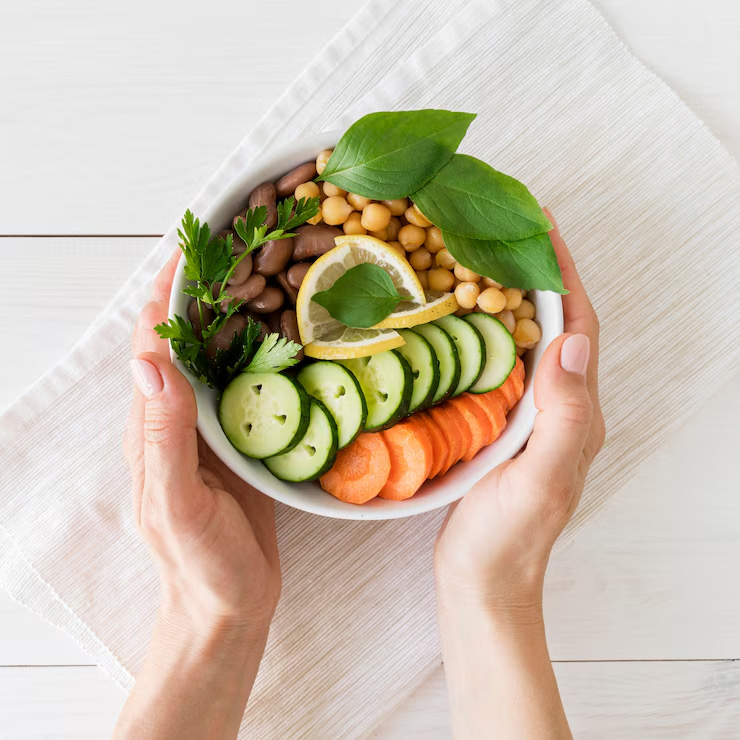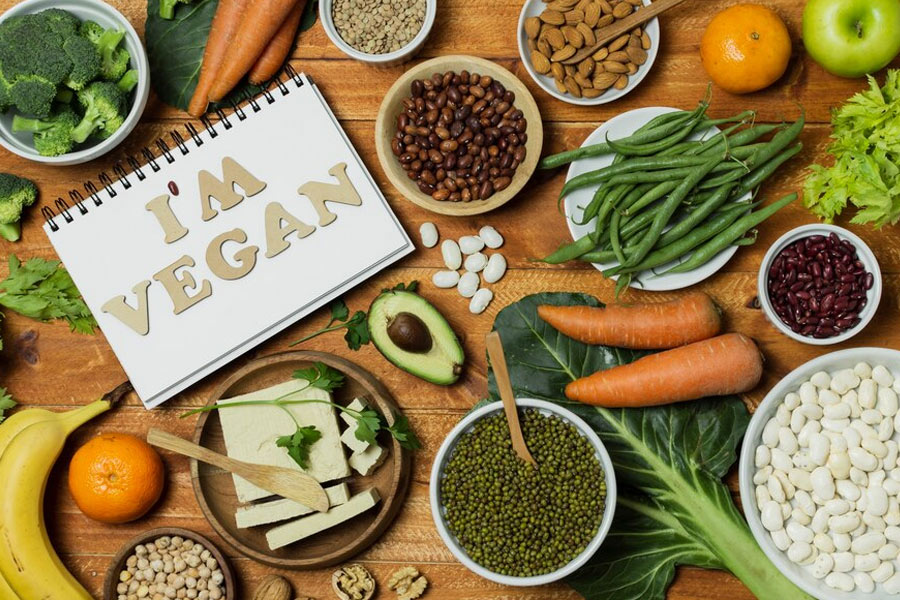
Mornings are all about setting the right foundation for the day, and breakfast plays a key role in this. Choosing the right foods in the morning not only fuels your body but also helps keep your energy levels stable and your mind focused. A well-balanced breakfast can support muscle health, improve brain function, and keep cravings in check. You can feel more energised, productive, and ready to take on the day by aligning your morning meal with your body’s needs. We spoke to Dr Shyam Ramakrishnan, Director, Innovation and Science, India and SE Asia Markets, Amway, who explained how tailoring your morning nutrition to your dietary needs can unlock better health and vitality, one meal at a time.
Table of Content:-
“Morning nutrition plays a special role in our daily lives because of how our body's internal clock, or circadian rhythm, works with the new field of chrono-nutrition. Essentially, the human body is hardwired to process food differently based on when we eat. Therefore, what you choose to eat at breakfast isn't just about filling your stomach, it's about matching up with your body's needs right when you wake up,” explained Dr Ramakrishnan.
Morning Nutrition: The Essential Nutrient Provider

Regardless of your diet; gluten-free, vegetarian, or vegan,starting your day with a balanced meal is key.
Breakfast high in protein, fibre, and nutrient density promotes muscle growth, brain development, and blood sugar stability. This type of breakfast helps cut down on cravings and provides sustainable energy for a longer time. Consuming breakfast with the right macronutrients, such as protein and fibre, can trigger the ‘second meal effect.’ This phenomenon occurs when a first meal helps regulate blood sugar levels after the next meal, such as lunch, according to an old clinical trial.
Skipping breakfast, or following very specific diets like vegan, gluten-free or vegetarian, can lead to protein, iron, calcium, and vitamins B12 and D deficiencies, as stated in a 2014 study.
Also Read: Can Eating Only Fruit In The Morning Cure Digestive Issues? Expert Answers
Mastering Gluten-Free, Vegetarian, and Vegan Morning Nutrition Regime
1. Gluten-Free Diets: Meeting Nutritional Needs

“Those who have celiac disease or are gluten-sensitive are advised to follow a gluten-free diet.
However, this condition is not very common in India as compared to Western nations, with only 1% of the Indian population being diagnosed with the disease,” said Dr Ramakrishnan. People with gluten intolerance have narrow food choices and often struggle with reduced nutrient absorption owing to the condition. This can result in nutrient deficiencies, including fibre, vitamin D, B12, folate, iron, zinc, magnesium, and calcium.
Tips for Gluten-Free Morning Nutrition
Here are some tips shared by Dr Ramakrishnan to help people plan a gluten-free breakfast in the morning:
Fill your plate with complex carbohydrates from whole grains and beans, protein sources from nuts, seeds, and legumes, and fibre plus micronutrients from fruits and vegetables, following the principles of the healthy plate.
Plate your meal with a variety of smaller portions.
Choose naturally gluten-free food like fruits, vegetables, legumes, nuts, and low-fat dairy.
Include gluten-free cereals and flours, and millets, such as amaranth, buckwheat, quinoa, ragi, and jowar.
Choose whole foods over processed ones. Prioritise whole grains, beans, and fresh produce as they are rich in fibre and micronutrients.
Sometimes due to busy schedules, it is difficult to have a balanced meal in the morning. So, one can consider incorporating plant-based protein and fibre supplements to address any nutritional gaps.
2. Essential Aspects of Vegetarian Diets

Vegetarian diets exclude meat, poultry, and seafood, and are focused mainly on plant-based foods. This diet is gaining a significant spot owing to being ethical, and environmentally sustainable with various health advantages. A 2016 study in JAMA found that replacing meat with plant proteins reduced the risk of death by 34%, and replacing eggs reduced it by 19%. This is due to a lower intake of saturated fats and cholesterol, along with a higher intake of vitamins, fibre, and essential nutrients compared to meat-eaters.
Nutritional Challenges: “While a vegetarian diet is more fundamental in nutrient-dense foods, plant-based foods may lack certain nutrients and therefore require careful planning to prevent inadequacies in protein, iron, selenium, calcium, vitamin D, and B12,” added Dr Ramakrishnan.
Crafting a Nutritious Vegetarian Morning Nutrition Meal
Shun Processed Foods: Avoid foods high in sodium, added sugar, and unhealthy fats.
Follow the Healthy Plate Concept: Divide the plate for breakfast in half with fruits/vegetables, one quarter with whole grains and one quarter with protein for wholesomeness of nutrition and portion control.
Focus on High-Protein Options: Add some lentils, beans, sprouts, nuts, seeds, low-fat paneer or other soy-based products for sustained energy and ensure calorie control.
Add Whole Grains: Consider steel-cut oats, millet, whole-grain bread or quinoa for fibre and minerals.
Fresh Fruits and Vegetables: Ensure sufficient intake of vitamins and minerals through fresh fruits and vegetables in the form of salads, smoothies, stir fries etc. These micronutrients, though needed in small quantities, act as vital 'triggers' for metabolism, play a key role in cellular functions, support red blood cell production, enhance oxygen transport throughout the body, and contribute to the health of bones and teeth.
Use Healthy Fats: Healthy fat sources like avocado, nuts, seeds, and olive oil not only facilitate nutrient absorption but also induce feelings of fullness.
Fortified Foods and Supplements: Opt for plant-based sources of protein that can provide your body with the nine essential amino acids. You may also consult with your physician and include plant protein supplements with a blend of soy, pea, and wheat along with multivitamin supplements for optimal nutrition. Nutritional supplements can improve your daily diet by providing a healthy dose of essential nutrients. They include vitamins and minerals that contribute to your overall well-being, helping you feel and look better, and promoting better sleep.
3. Vegan Diets: Ensuring Comprehensive Nutrition

Veganism is a more restrictive form of vegetarianism that eliminates all animal products, such as meat, dairy, eggs, and honey. The diet primarily includes fruits, vegetables, legumes, plant-based milk, as well as nuts and seeds.
“It offers various health benefits like improved lipid profiles, better glycemic control, healthy body weight, reduced inflammation, and lower cardiovascular risk. However, due to its restrictions, vegans must ensure sufficient intake of calcium, iron, vitamin D, protein, vitamin B12, and omega-3 fatty acids that are more abundant in animal-based food sources,” explained Dr Ramakrishnan.
Tips for a Well-Balanced Vegan Breakfast
A well-balanced vegan morning nutrition plan is centred around nutrient-dense foods, which will provide enough protein, fibre, healthy fats, and complex carbohydrates. Follow these expert-recommended tips:

Overall plant-based index: A higher intake of healthy plant-based foods should be encouraged. It's crucial to understand here that not all plant-based foods are healthy. To maximise benefits, focus on nutrient-dense options like whole grains, fruits, and vegetables.
Intake of sufficient protein: Ensure adequate proteins through beans, legumes, boiled sprouts, nuts and seeds, and tofu. Add soy protein to provide all essential amino acids, as it is the highest quality plant protein source. Consider adding plant-based protein powders into chapati dough, batters, porridge, and smoothies to meet protein goals.
Focus On Micro-Nutrients: Ensure micro-nutrient requirements are met with fortified plant milk, nutritional yeast replete with Vitamin B12 and a rainbow of fruits, vegetables, nuts, seeds, and legumes.
Major Supplements: High-quality supplements include plant-based protein and multivitamins/minerals along with good fats to ensure all-inclusive nutritional adequacy to address gaps that regular diets struggle to address.
Bottomline
Dr Ramakrishnan concluded, “On rising in the morning, one should regard the intake of appropriate nutrition as a must to be active during the day and run metabolic functions. A well-balanced morning nutrition regime including a mix of essential nutrients is crucial. A nutrient-rich diet with need-based supplements can help avoid deficiencies and ensure a better quality of life and a firm foundation for health every day. Beginning the day with a good nutrient-rich morning nutrition is key.”
[Disclaimer: This article contains information provided by an expert and is for informational purposes only. Hence, we advise you to consult your professional if you are dealing with any health issues to avoid complications.]
How we keep this article up to date:
We work with experts and keep a close eye on the latest in health and wellness. Whenever there is a new research or helpful information, we update our articles with accurate and useful advice.
Current Version